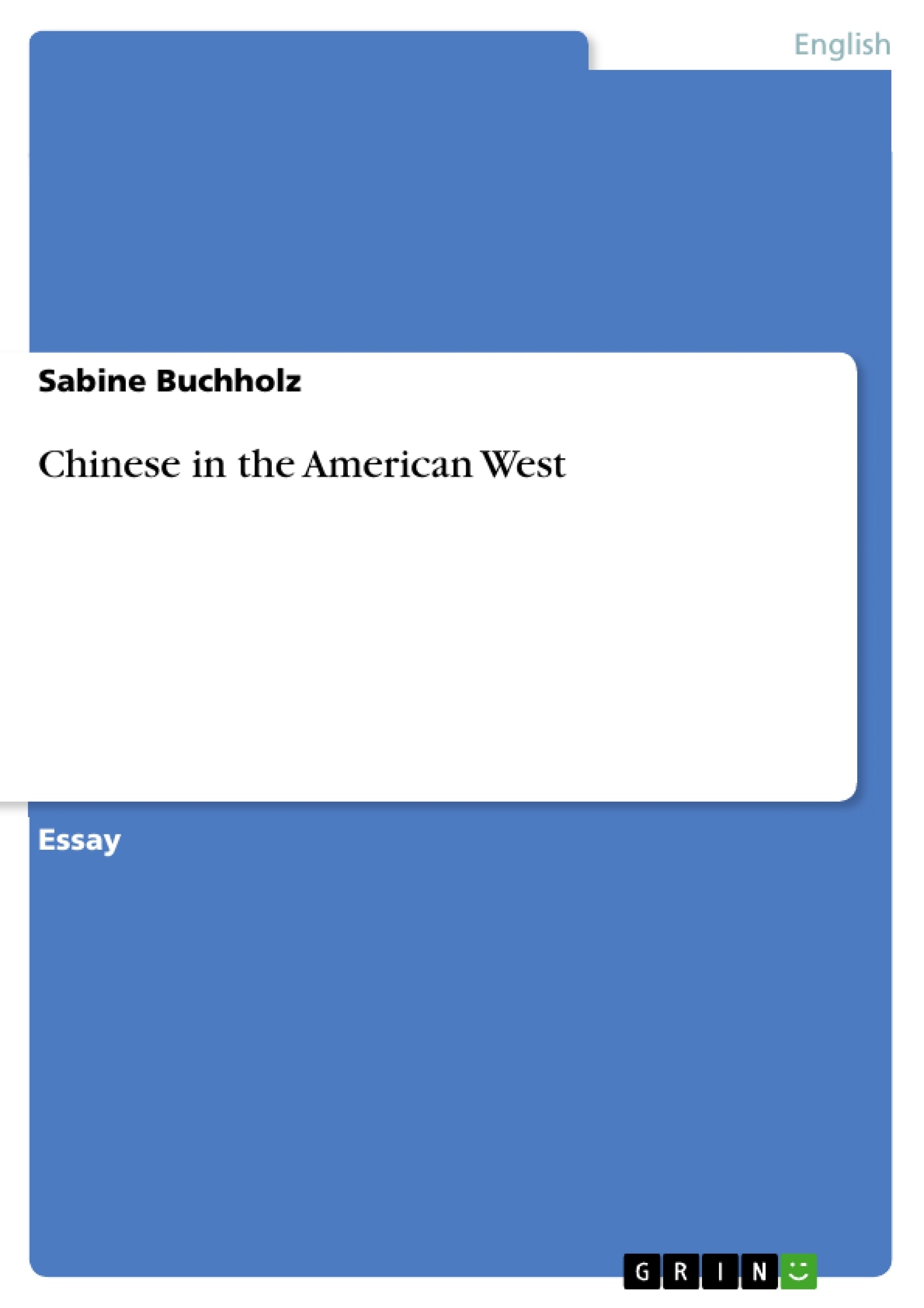In the times of the great gold rush, 1848-1855, a large number of Chinese people migrated to the ‘melting pot’ and ‘land of unlimited opportunity’ California for economic reasons. This essay does not only give an overview of the facts and figures of Chinese-American history; moreover, it has a look at two very different literary works and their divergent ways of dealing with the controversial issue: Mark Twain’s autobiographic adventure narrative Roughing It (1872) and Frank Chin’s spirited novel of education Donald Duk (1991).
Inhaltsverzeichnis (Table of Contents)
- Chinese in the American West
- A Historical Overview
- The Gold Rush and Chinese Immigration
- Anti-Chinese Sentiment and Discrimination
- Chinese Contributions to the American West
- Literary Representations of the Chinese Experience
- Mark Twain's Roughing It
- Frank Chin's Donald Duk
- Conclusion
Zielsetzung und Themenschwerpunkte (Objectives and Key Themes)
This essay explores the historical and literary representations of the Chinese experience in the American West. It aims to analyze the factors that shaped Chinese immigration, the challenges faced by Chinese immigrants, and the impact of their presence on American society. The essay examines two contrasting literary works, Mark Twain's Roughing It and Frank Chin's Donald Duk, to understand how these authors portray the complexities of Chinese-American identity and cultural interactions.
- Chinese Immigration to the American West
- Anti-Chinese Prejudice and Discrimination
- Cultural Identity and Assimilation
- Literary Representations of Chinese-American Experiences
- Cultural Clash and Misunderstandings
Zusammenfassung der Kapitel (Chapter Summaries)
The first chapter provides a historical overview of Chinese immigration to the American West, tracing the influx of Chinese laborers seeking opportunities during the gold rush. It highlights the challenges they faced, including widespread discrimination and prejudice. The second chapter analyzes Mark Twain's Roughing It, exploring how the author depicts Chinese immigrants and their roles in the development of the West. The third chapter examines Frank Chin's Donald Duk, focusing on the complexities of assimilation, cultural identity, and the challenges of being a Chinese-American in a predominantly white society.
Schlüsselwörter (Keywords)
The central keywords and focus topics of the text are: Chinese-American history, immigration, discrimination, cultural identity, assimilation, literary representation, Mark Twain, Frank Chin, Roughing It, Donald Duk, cultural clash, and intercultural misunderstandings.
Frequently Asked Questions
What was the primary reason for Chinese immigration to the American West in the mid-19th century?
During the Great Gold Rush (1848-1855), a large number of Chinese people migrated to California primarily for economic reasons, seeking opportunities in the 'land of unlimited opportunity'.
Which literary works are used to explore the Chinese-American experience in this essay?
The essay analyzes two contrasting works: Mark Twain’s autobiographic adventure narrative "Roughing It" (1872) and Frank Chin’s novel of education "Donald Duk" (1991).
What are the key themes discussed regarding Chinese-American history?
The central themes include anti-Chinese prejudice and discrimination, cultural identity and assimilation, the impact of Chinese laborers on the development of the West, and intercultural misunderstandings.
How does Mark Twain portray Chinese immigrants in "Roughing It"?
Twain depicts the roles of Chinese immigrants in the development of the West and explores how their presence was perceived during that era.
What does Frank Chin’s "Donald Duk" focus on?
Chin’s novel focuses on the complexities of cultural identity, the challenges of assimilation, and the experience of being Chinese-American in a predominantly white society.
- Quote paper
- Sabine Buchholz (Author), 2007, Chinese in the American West, Munich, GRIN Verlag, https://www.grin.com/document/82699



